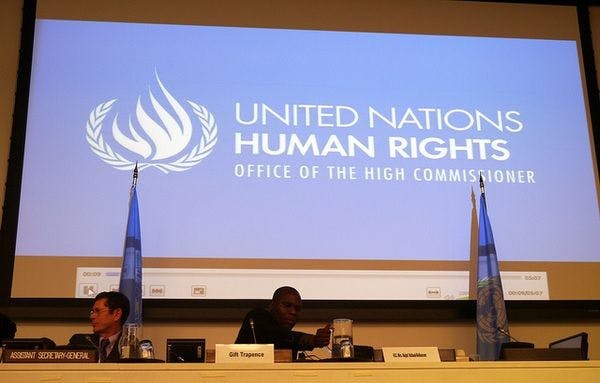Le Comité des Droits de l’Homme déplore la réponse indonésienne et l’appelle à mettre fin aux exécutions pour délit de drogue
Malgré les recommandations du Comité pour que l’Indonésie arrête d’exécuter les prisonniers condamnés pour délits de drogue, le pays a maintenu ces exécutions. Pour en savoir plus, en anglais, veuillez lire les informations ci-dessous.
Abonnez-vous à l'Alerte mensuelle de l'IDPC pour recevoir des informations relatives à la politique des drogues.
The UN Human Rights Committee has given Indonesia the lowest possible evaluation for its failure to respond to the Committee’s call in 2013 to stop executing prisoners for drug-related crimes.
After a regular review of Indonesia’s human rights record, the Committee in August 2013 urged the State to reinstate the de facto moratorium on the death penalty and to ensure that, if capital punishment was maintained, it was only for the most serious crimes, which do not include drug-related offences. The Committee also called on Indonesia to review its legislation so offences involving narcotics were not punishable by the death penalty.
In a follow-up evaluation of Indonesia this week, Committee members voiced concern at the recent executions in Indonesia and regretted that the State had not amended its legislation as requested. They awarded Indonesia a rare E grade on the scale of A to E, where A is largely satisfactory and E indicates the measures taken go against the Committee's recommendation.
Indonesia had argued that, given the severe impact and the challenges posed by drug-related crimes to the nation’s survival and its young generation, it considered such offences as among the most serious to which the death penalty may apply.
Article 6* of the International Covenant on Civil and Political Rights (ICCPR), to which Indonesia is a State Party, does allow for the death penalty in certain very restricted cases. The Committee has repeatedly stressed that drug-related offences are not such cases and that capital punishment for drug-related offences does not comply with article 6 of the Covenant.
The Human Rights Committee monitors implementation by States Parties of the ICCPR by means of regular review and, where applicable, a follow-up procedure to analyse a State’s response to the most pressing issues.
The Committee also urges all States to ratify the Second Optional Protocol to the Covenant, which aims at the abolition of the death penalty. In 2013, it called on Indonesia to do so.
Click here to read the full article.
Keep up-to-date with drug policy developments by subscribing to the IDPC Monthly Alert.
Sujets
Régions
Profils associés
- United Nations
